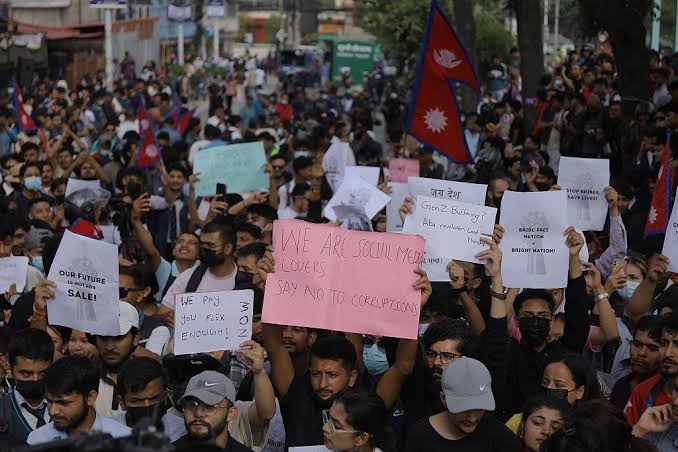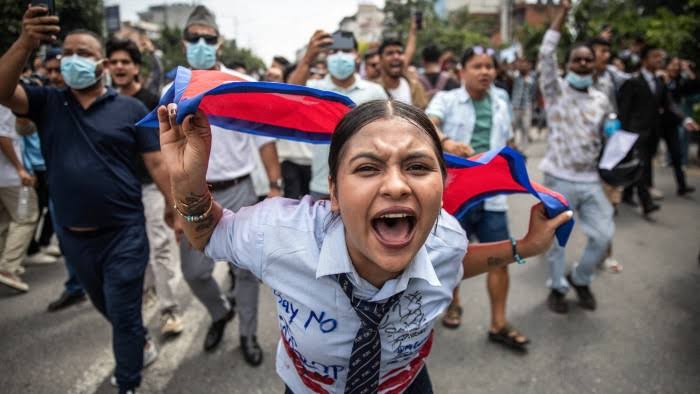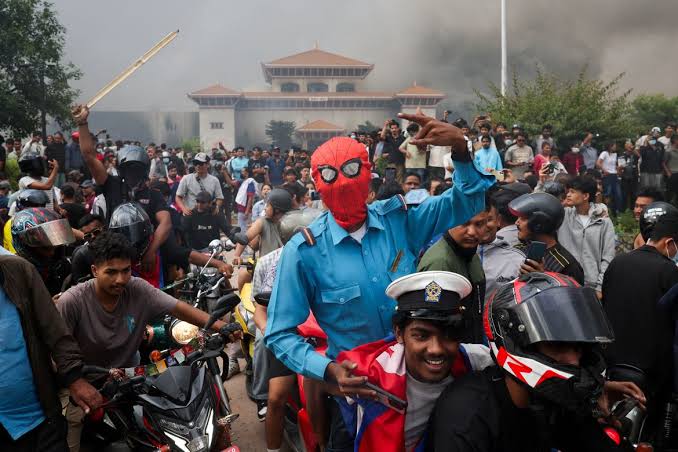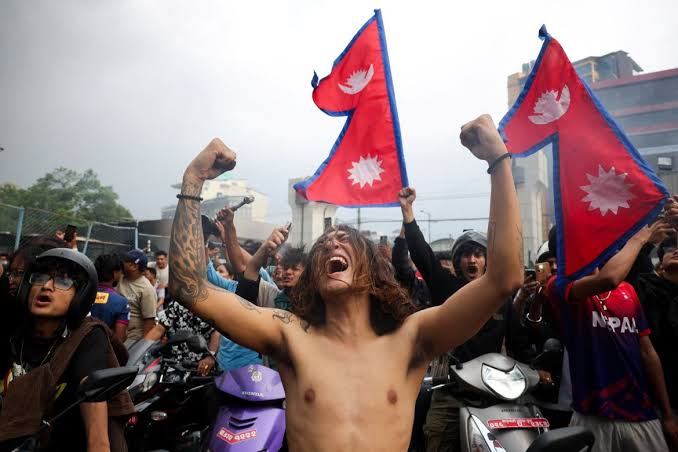
Nepal’s streets erupted this week as thousands of young protesters, mostly from Generation Z, forced the government to roll back controversial social media restrictions after days of violent unrest that left at least 19 people dead and hundreds injured.
The protests, which began online as a hashtag-driven campaign, quickly escalated into nationwide demonstrations after the government introduced sweeping measures to regulate and temporarily ban several platforms. Officials said the move was aimed at curbing misinformation and cybercrime, but many youths saw it as an attempt to silence criticism of corruption and inequality.
Clashes broke out in Kathmandu and other major cities including Pokhara, Biratnagar, and Itahari. Police deployed tear gas, rubber bullets, and in some cases live rounds to disperse crowds. Protesters torched parts of the Singha Durbar government complex and targeted politicians’ residences in acts of defiance. Hospitals reported a surge in casualties as violence spread.
Faced with mounting pressure, the government reversed the measures within days. The Home Affairs Minister resigned, and Prime Minister Pushpa Kamal Dahal, widely known as Prachanda, is under heavy pressure to step down. The army was deployed in Kathmandu and curfews imposed in several districts to restore order.
For demonstrators, however, the protests were about far more than social media. Placards and speeches highlighted deep-seated frustrations over unemployment, corruption, and the widening gap between Nepal’s political elite and its struggling youth. “They tried to take away our voices online,” one protester shouted during a rally in Kathmandu. “But that only brought us to the streets.”
Rights groups including Human Rights Watch condemned the use of lethal force and called for an independent investigation into the killings and mass arrests. International media outlets described the unrest as one of Nepal’s biggest youth-led movements in recent years, underlining the political power of a digitally connected generation.
As calm slowly returns, many analysts warn that the rollback of the social media bill may not be enough to pacify the anger. For Nepal’s Gen Z, the protests were as much about jobs, justice, and dignity as they were about digital freedoms.











